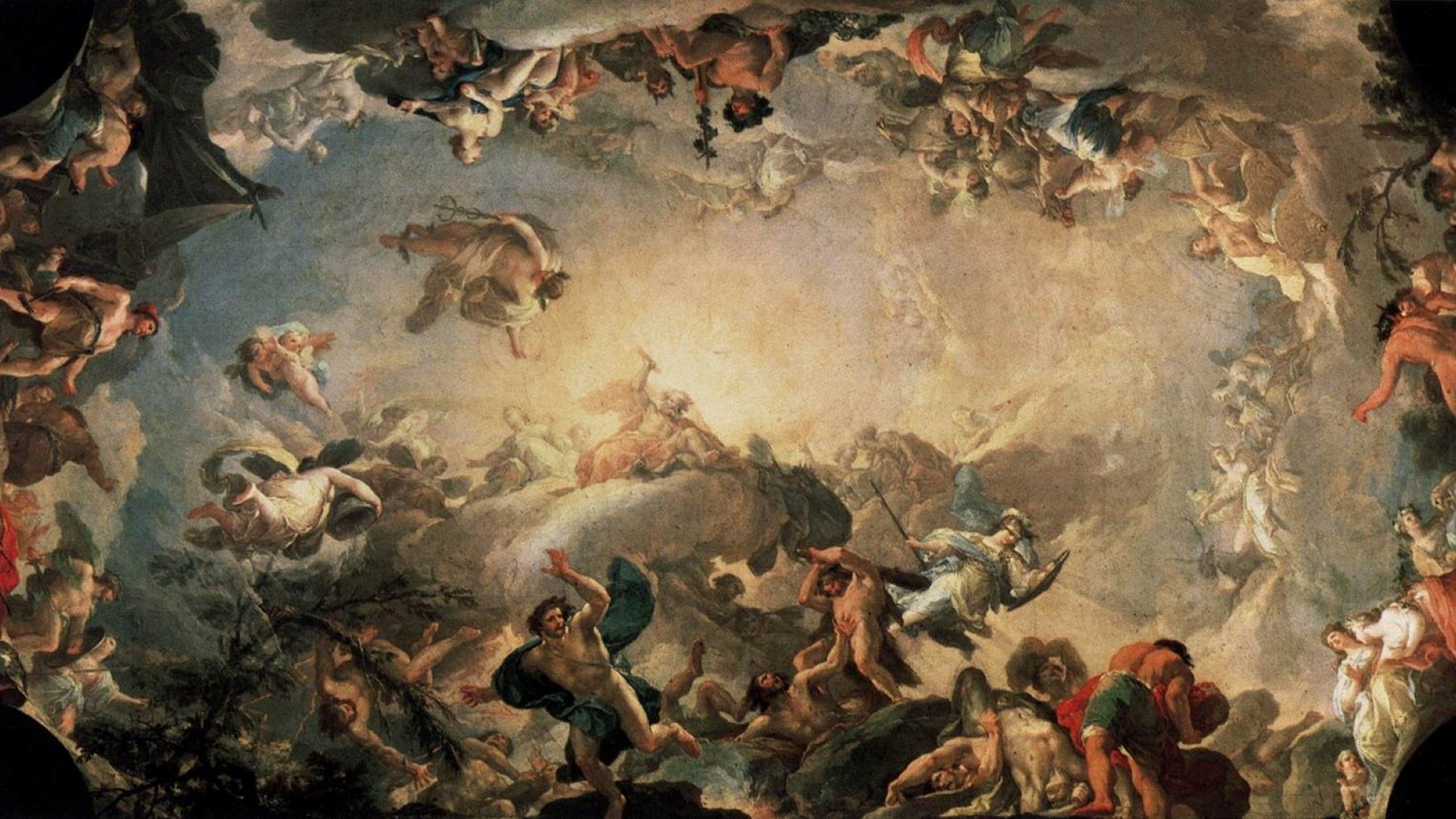
Polydorus
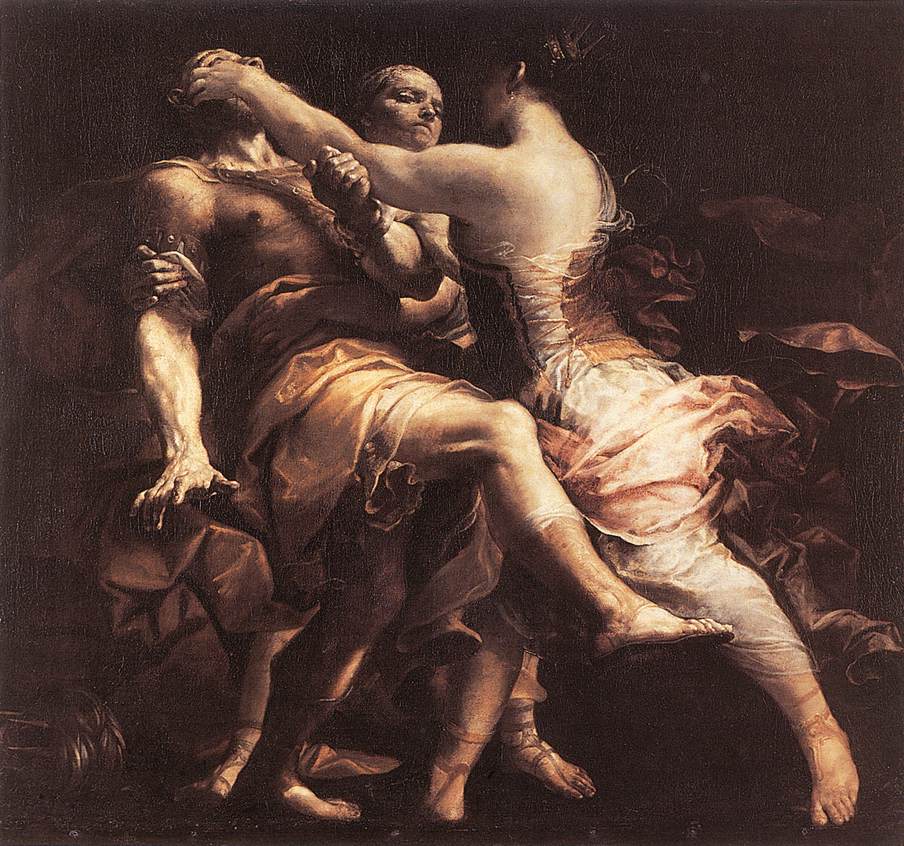
POLYDORUS OF TROY
Polydorus or Polydoros (Ancient Greek: Πολύδωρος, meaning: "many-gift[ed]") is the youngest son of Priam and Hecuba in the mythology of the Trojan War.
Polydorus is an example of the fluid nature of myth, as his role and story vary significantly in different traditions and sources.
In the Iliad
In Homer's Greek epic the Iliad, Polydorus is depicted briefly as a foe to Achilles. According to this source, Polydorus was the youngest son of Priam, and thus his father would not let him fight.
Achilles, however, sees him on the battlefield showing off his great speed running through the lines and spears him, ending his life. Seeing his brother Polydorus’ death causes Hector to challenge Achilles.
In Hecuba and Metamorphoses
In Euripides' tragedy Hecuba, the ghost of Polydorus is a character, and his death is the cause of the main conflict of the play. Polydorus’ ghost presents the prologue of the play, explaining that he was sent to Thrace under the protection of King Polymestor in case Troy fell.
With his son, Priam sent gold so that if Troy should fall his son could continue to support himself. Once Troy fell, however, Polymestor killed Polydorus by throwing him into the sea and stole the gold. Polydorus laments the fact that his body is adrift in the sea without the proper death rites.
Later in the play, a slave woman tells Hecuba that Polydorus’ body has been found washed up on shore. Hecuba explains that she saw the murderer of Polydorus in a dream and it is Polymestor. Aided by Agamemnon and the other captive women, Hecuba proceeds to avenge her son’s murder by killing Polymestor’s sons and blinding him.
This same story of Polydorus is the subject of an episode in Ovid’s Metamorphoses.
In the Aeneid
In Vergil's Roman epic the Aeneid, Aeneas lands in Thrace hoping to establish a colony for his people. The land is overgrown with various plants, and as Aeneas begins to uproot a bush of Myrtle, which he sees growing on mysterious mound, so that he can protect an altar he has just made with the boughs. The branches begin to spout blood upon being uprooted.
The plant begins to speak and explains that it is Polydorus - the spears that were used to kill him stuck into the ground and took root, transforming into plants. It is explained that Priam sent Polydorus to Thrace with payment to the Thracian king so that he would be protected if Troy fell.
When Troy did fall, the king broke his pact with the Trojans, killed Polydorus in order to ingratiate himself with Agamemnon and kept the payment. Aeneas goes on to give Polydorus a proper burial.
In Fabulae
According to the tradition of Hyginus’ Fabulae, Priam and Hecuba entrusted Polydorus’ upbringing to his sister, Iliona, who was the wife of Polymestor. In order to ensure Polydorus’ safety, she raised him as her own son, while she raised her and Polymestor’s true son, Deipylus, as her brother.
After the fall of Troy, the Achaeans offered Polymestor Agamemnon’s daughter Electra to be his wife if he killed Polydorus. Polymestor agreed, but because of the switch that Iliona executed, he instead killed Deipylus.
As this occurred, Polydorus went to the oracle of Apollo in order to learn of his true parentage. Here he was told that his home city had been destroyed, his father killed, and his mother captured.
Upon returning home, and still believing that he was the son of Polymestor and Iliona, he asked Iliona why the oracle had been wrong, at which point she tells him the truth of his ancestry. He proceeds to blind and kill Polymestor at his sister’s advice.
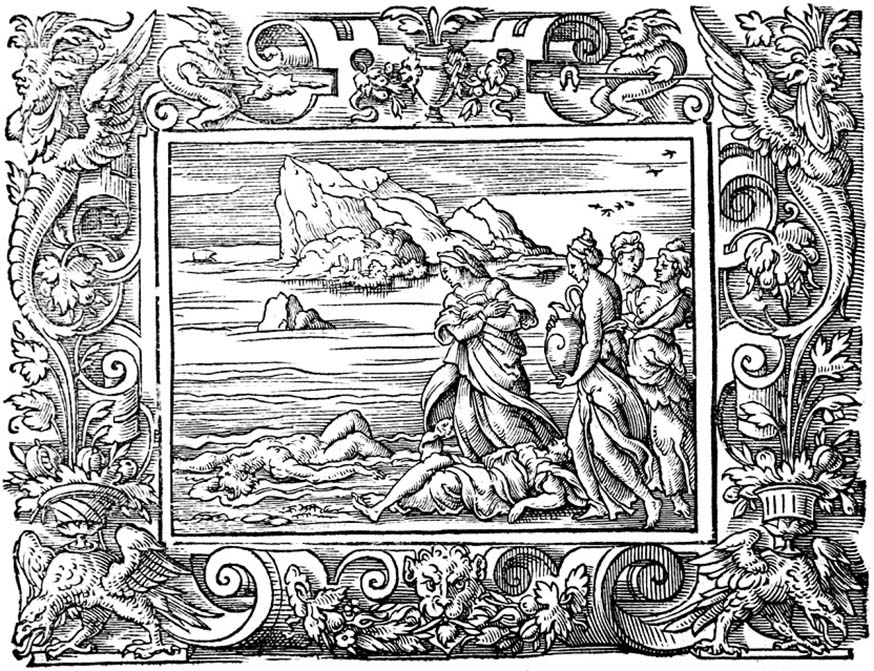
POLYDORUS OF THEBES
In Greek mythology, Polydorus or Polydoros was a king of Thebes.
Polydorus was the eldest son of Cadmus and Harmonia but younger than Semele, his other sisters were Autonoë, Ino and Agave. He was the father of Labdacus by Nycteïs, the daughter of Nycteus.
Last of all Harmonia added a little son to the brood of sisters, and made Cadmos happy – Polydoros, the morning star of the Aonian nation, younger than rosy cheek Semele (Nonnus. Dionysiaca, 5.207ff).
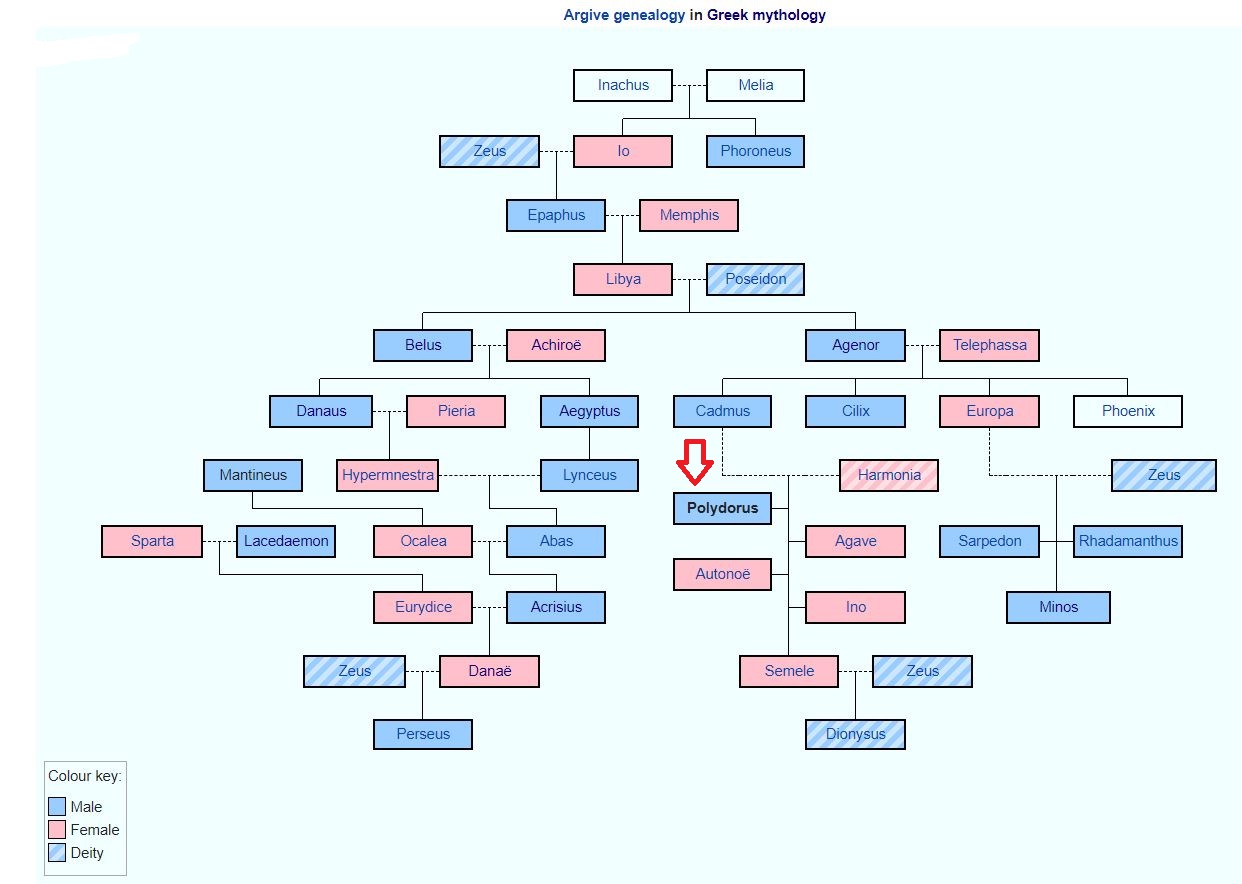
Upon the death of Cadmus, Pentheus, the son of Echion and Agave, after banishing Polydorus ruled Thebes for a short time until Dionysus prompted Agave to kill Pentheus. Polydorus then succeeded Pentheus as king of Thebes and married Nycteïs.
When their son Labdacus was still young, Polydorus died of unknown causes, entrusting his father-in-law Nycteus to care the infant prince and to be his regent.
In Pausanias's history, Polydorus' rule began when his father abdicated the throne and together with her mother Harmonia migrated to the Illyrian tribe of the Enchelii, but this is the only source for such a timeline.
It is also said that along with the thunderbolt hurled at the bridal chamber of Semele there fell a log from heaven. This log was adorned by Polydorus with bronze and called it Dionysus Cadmus.
A different account by Diodorus stated that the Thebans were exiled a second time (the first time during the reign of Cadmus) for Polydorus came back and was dissatisfied with the situation because of the misfortunes that had befallen Amphion, the previous king, in connection with his children.

The name POLYDORUS in Greek Mythology and History
In Greek mythology, Polydorus (Ancient Greek: Πολύδωρος, meaning: "many-gift[ed]") or Polydoros referred to several different people.
Polydorus, son of Phineus and Cleopatra, and brother of Polydector (Polydectus). These two sons by his first wife were blinded by Phineus because of the instigation of their stepmother, Idaea who accused them of corrupting her virtue.
Prince Polydorus, son of the King Cadmus and goddess Harmonia, fathered Labdacus by his wife Nycteis.
Polydorus, an Argive, son of Hippomedon was called. Pausanias lists him as one of the Epigoni, who attacked Thebes in retaliation for the deaths of their fathers, the Seven Against Thebes, who died attempting the same thing.
Prince Polydorus, a Trojan, was the King Priam's youngest son.
Polydorus, a man from Zacynthos who was one of the suitors of Penelope, wife of Odysseus.
Polydorus, a Ceteian warrior killed by Odysseus using his sword (Ceteius is called a stream in Asia Minor).
Polydorus (son of Astyanax)
In history, Polydorus was: Polydorus of Sparta (reigned from c. 741 to c. 665 BC)
In art, Polydorus was: One of the three Rhodian sculptors who created the sculpture Laocoön and His Sons and signed the Sperlonga sculptures
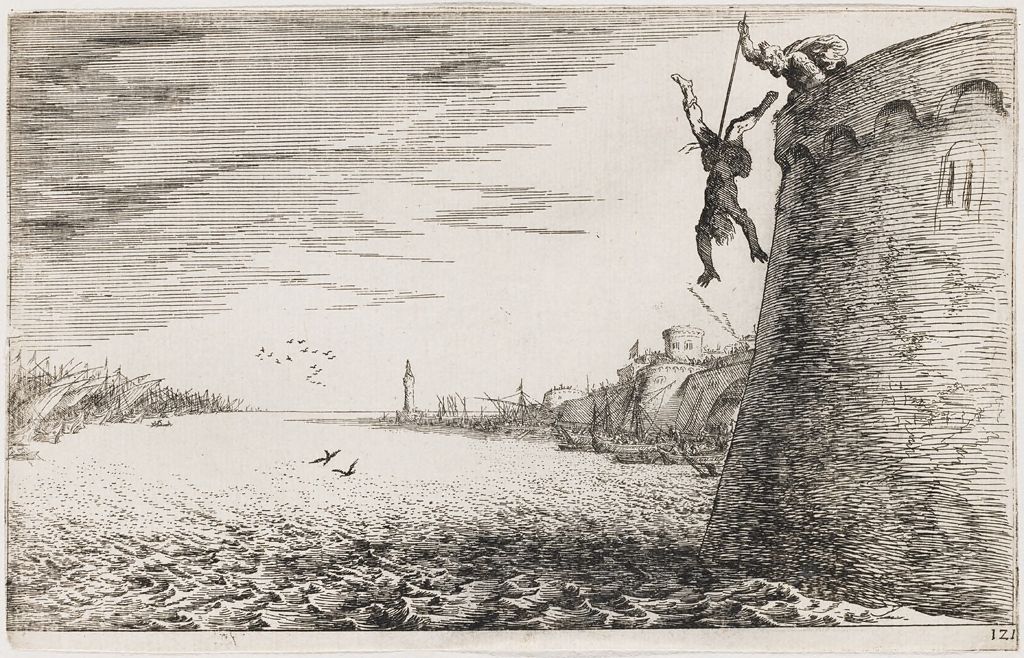
Sources
Scholia on Ovid. Ibis, 273
Pseudo-Apollodorus. Bibliotheca, 3.5.2
Pausanias. Description of Greece, 2.20.5
Hyginus. Fabulae, 71
Homer, and Stanley Lombardo. Iliad. Indianapolis: Hackett Pub., 1997:399.
Pseudo-Apollodorus. Bibliotheca, Ep.7.29
Quintus Smyrnaeus. Posthomerica, 11.79
Hesiod. Theogony, 978,
Pseudo-Apollodorus. Bibliotheca, 3.4.2,
Diodorus Siculus. Bibliotheca historica, 4.2.1 & Nonnus. Dionysiacca, 5.208
Nonnus. Dionysiacca, 5.208
Nonnus. Dionysiaca, 5.298
Herodotus. The Histories, 5.59, Euripides. The Phoenician Women, 1, Arrian. The Anabasis of Alexander, 2.16.1 & Sophocles. Oedipus Tyrannus, 267
Nonnus. Dionysiaca, 5.207ff
Nonnus. Dionysiaca, 46.259
Pseudo-Apollodorus. Bibliotheca, 3.5.2
Hyginus. Fabulae, 76
Pseudo-Apollodorus. Bibliotheca, 3.5.5 & Pausanias. Description of Greece, 2.6.2 & 9.5.4
Pausanias. Description of Greece, 9.5.3
Pausanias. Description of Greece, 9.12.4
Diodorus Siculus. Bibliotheca historica, 19.53.5
Homer, and Stanley Lombardo. Iliad. Indianapolis: Hackett Pub., 1997:399.
Euripides, (Marilyn Nelson, tr.) Hecuba. U Penn Press, 1998.
Ovidius, Naso Publius (Alan D. Melville, tr.) Metamorphoses. Oxford: Oxford University Press, 1986:307–12.
The king is assumed to be Polymestor although he is not mentioned explicitly.
Virgil (Robert Fitzgerald, tr.) The Aeneid. New York: Knopf, 1992. Print. 66–67.
Virgil; with an English Translation by H. Rushton Fairclough; in Two Volumes (Eclogues, Georgics, Aeneid I-IV). 1. Cambridge and London: Harvard University Press and William Heinemann. 1938. p. 350-353. Retrieved 25 January 2018 – via Internet Archive.
pseudo-Apollodorus, R. Scott Smith, Stephen Trzaskoma, and C. Julius. Hyginus. Apollodorus' Library and Hyginus' Fabulae: Two Handbooks of Greek Mythology. Indianapolis: Hackett Pub., 2007:134.
"Wikipedia"
Our Mobile Application
Check out Our Mobile Application "Ancient Greece Reloaded"


